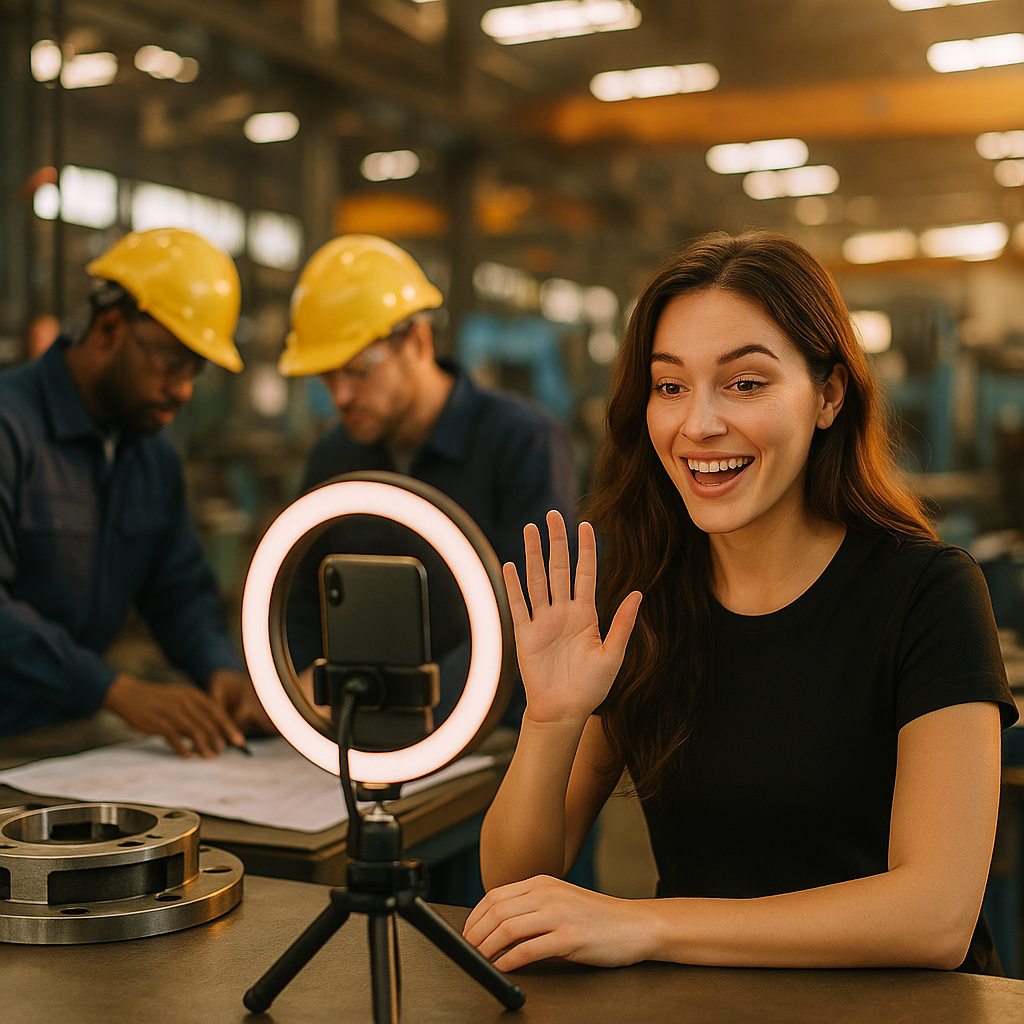In today’s competitive job market, attracting top engineering talent is increasingly difficult, especially for companies outside the tech hub spotlight. Discover in this case study how a manufacturing company used influencers to recruit engineers successfully—creating buzz, boosting applications, and reshaping its employer brand. Ready to learn how influencer marketing transformed industrial recruitment?
Why Manufacturing Companies Need Innovative Recruitment Strategies
The engineering talent shortage has hit manufacturing companies especially hard in 2025. According to the latest Engineering Employment Outlook, over 70% of manufacturers consider skilled hiring their number one challenge. Many young engineers still perceive manufacturing as outdated compared to flashier tech startups. To compete, manufacturers must break stereotypes and showcase their work as innovative—where influencer partnerships offer an edge.
Traditional recruitment methods like job fairs and listings no longer suffice. Candidates research company cultures, projects, and social values before applying. Social media’s reach, coupled with authentic voices, means strategically chosen influencers can bridge the perception gap and make manufacturing roles more appealing than ever.
Choosing the Right Engineering Influencers for Recruitment Success
The cornerstone of this campaign involved identifying influencers who resonated with early- and mid-career engineers. The company’s talent team prioritized:
- Technical expertise: Influencers with engineering backgrounds, proven project experience, or strong ties to STEM education.
- Engaged communities: Active followers who trust the influencer’s perspective on workplaces and career advice.
- Alignment with brand values: Creators passionate about sustainability, innovation, or diversity—mirroring the company’s goals.
This approach helped the manufacturer avoid transactional celebrity sponsorships and instead engage influential micro-creators on platforms like LinkedIn, YouTube, and TikTok. By focusing on engineers who produce relatable, educational content, the brand effectively tapped audiences who might otherwise overlook manufacturing.
How the Influencer Campaign Was Designed and Launched
The engineering recruiting campaign unfolded in three strategic phases:
- Research & Partnership: HR and marketing teams collaborated, researching engineering creators and starting dialogues months before launch. Contracts specified clear objectives—boosting applications and enhancing employer reputation without scripting authenticity out of the content.
- Content Creation: Influencers visited company sites, interviewing current engineers and showcasing advanced projects—like AI-driven production lines and eco-friendly manufacturing practices. Video tours, Q&As, and “day in the life” stories offered insider perspectives rarely found in job postings.
- Social Amplification: Launches were timed to recruitment peaks and used hashtags such as #EngineeringCareers and #NextGenManufacturing. Employee advocates joined the conversation, responding to comments and sharing their own stories to sustain engagement.
By integrating influencers into genuine manufacturing environments and letting them ask tough questions, the company ensured content authenticity—a critical factor for skeptical engineering candidates.
Results: Boosting Applications and Hiring High-Quality Engineers
The influence-driven recruitment effort delivered significant, measurable results within six months:
- 156% increase in engineering job applications compared to the prior period, including a marked rise in applicants from underrepresented backgrounds.
- 35% faster time-to-fill for core engineering positions, reducing expensive vacancies.
- Positive sentiment: Employer brand analytics revealed a 240% uptick in positive mentions tied to innovation, flexibility, and culture on sites like Glassdoor and LinkedIn.
Surveys of new hires highlighted that influencer-led content directly impacted their decision to apply, crediting the behind-the-scenes look at workplace culture and tech advancement. The use of micro-influencers also meant lower campaign costs and longer-lasting engagement, as their content continued garnering views for months.
Overcoming Challenges and Ensuring Campaign Authenticity
Pioneering influencer recruitment came with its hurdles. The biggest challenge was balancing brand messaging with the influencer’s own tone. Too much control threatened authenticity; too little risked miscommunication. In response, the company adopted a code of transparency, asking influencers to state their partnerships clearly while promising unrestricted interviews with staff.
Another challenge involved measuring the true impact of influencer content. By deploying custom applicant tracking links, periodic surveys, and social listening tools, the company accurately attributed spikes in applications and improved candidate quality to this campaign—not coincidental market forces.
Most importantly, company leadership was coached on social media best practices, ensuring their own posts augmented (and didn’t undermine) influencer outreach. This company-wide buy-in made the influencer strategy a sustainable part of the recruitment mix.
Lessons Learned: Influencer Marketing Beyond Recruitment
This case study underscores a vital shift in talent acquisition: today’s sought-after engineers want to join dynamic, transparent, and values-driven organizations. Influencer campaigns are now central to employer branding. The manufacturer’s success sparked new initiatives, partnering with influencers on:
- STEM education events and scholarships
- Product launches featuring employee engineers
- Diversity and inclusion storytelling
By treating influencer partnerships as two-way collaborations, the company positioned itself not only as an employer of choice but as an industry thought leader. Their approach can be tailored to different roles, industries, and regions—inspiring other manufacturers to refresh their recruitment playbooks in 2025.
FAQs: Influencer Recruitment in Manufacturing
- How do manufacturers find the right influencers?
Focus on creators active in the engineering or STEM space. Analyze follower engagement, content credibility, and values alignment. Micro-influencers with niche audiences often drive the best recruitment outcomes. - Are influencer campaigns only suitable for large companies?
No. Small and mid-size manufacturers can benefit, especially by building long-term relationships with local or sector-focused influencers. - How is campaign ROI measured?
Use trackable application links, candidate surveys, and sentiment analysis. Compare data against previous recruiting efforts to assess impact on applications and quality of hires. - What content resonates most with engineers?
Authentic “day in the life” videos, project showcases, and transparent Q&As appeal to engineers seeking insights into culture, technology, and growth.
In conclusion, this case study proves that manufacturing companies can successfully use influencers to recruit engineers—by elevating their story, showcasing innovation, and building authentic connections. The key takeaway: strategic influencer partnerships are transforming recruitment, attracting top engineering talent in a rapidly changing job market.
